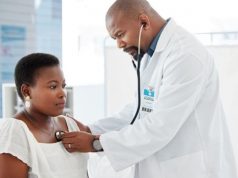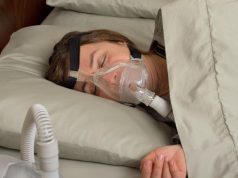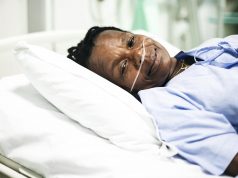Among Whites, high OSA risk, provider-diagnosed sleep apnea, and PAP treatment linked to increased risk for incident stroke
By Elana Gotkine HealthDay Reporter
FRIDAY, March 8, 2024 (HealthDay News) — Among White individuals, obstructive sleep apnea (OSA), provider-diagnosed sleep apnea (PDSA), and use of positive airway pressure (PAP) for treatment of PDSA are associated with an increased risk for incident stroke, according to a study published online March 6 in Neurology.
Rebecca Robbins, Ph.D., from Harvard Medical School in Boston, and colleagues examined OSA symptoms and their relationships to stroke incidence by race/ethnicity using data from the REasons for Geographic and Racial Differences in Stroke study. The relationship of snoring, OSA risk, PDSA, and PDSA treatment using PAP with incident stroke was examined during an average of 12 years of follow-up.
Overall, 38.1 percent of the 22,192 participants identified as Black. The researchers found that snoring was not associated with incident stroke. Among White, but not Black individuals, there were associations seen for high OSA risk and PDSA with incident stroke. In White individuals, PAP therapy among those with PDSA was associated with increased incident stroke risk; among Blacks, PAP therapy use was associated with a reduced risk for incident stroke among those with PDSA.
“We also document a concerning increase in incident stroke risk among White individuals with PDSA who reported PAP therapy use compared with those without PDSA, but a reduction in stroke risk among Black individuals with PDSA who reported PAP therapy use compared with those with PDSA not using PAP therapy, thereby complicating and refining the previous literature on racial/ethnic disparities in OSA symptoms, risk, and treatment,” the authors write.
One author disclosed ties to industry.
Abstract/Full Text (subscription or payment may be required)
Copyright © 2024 HealthDay. All rights reserved.








